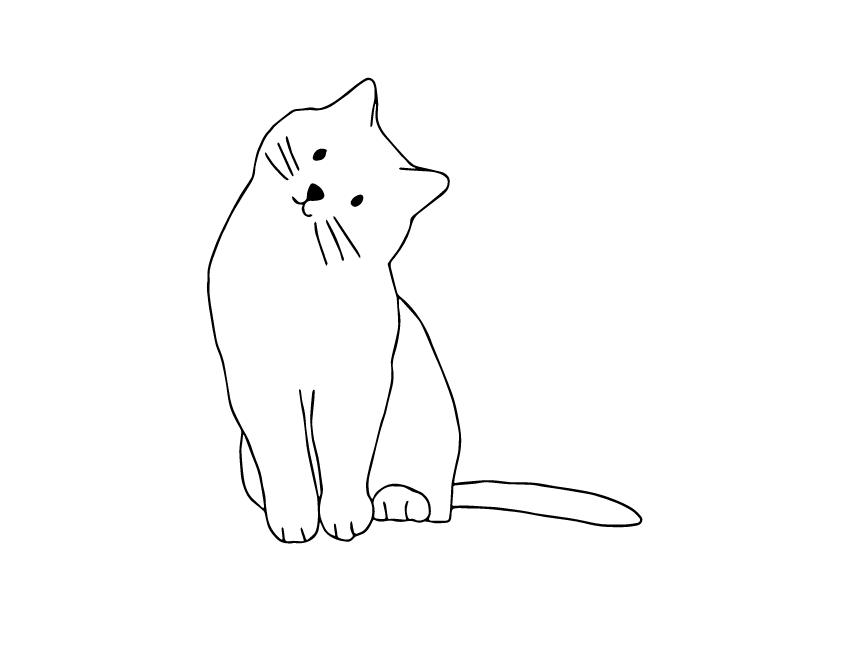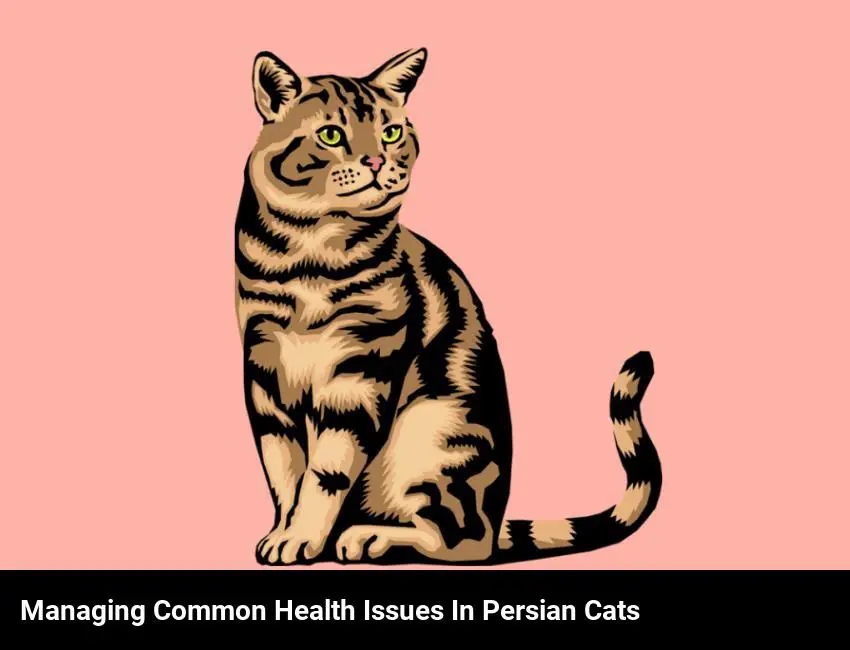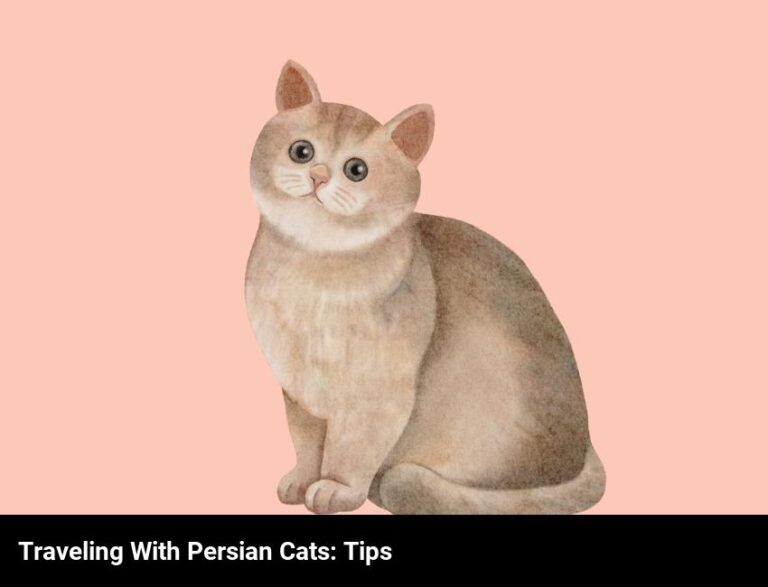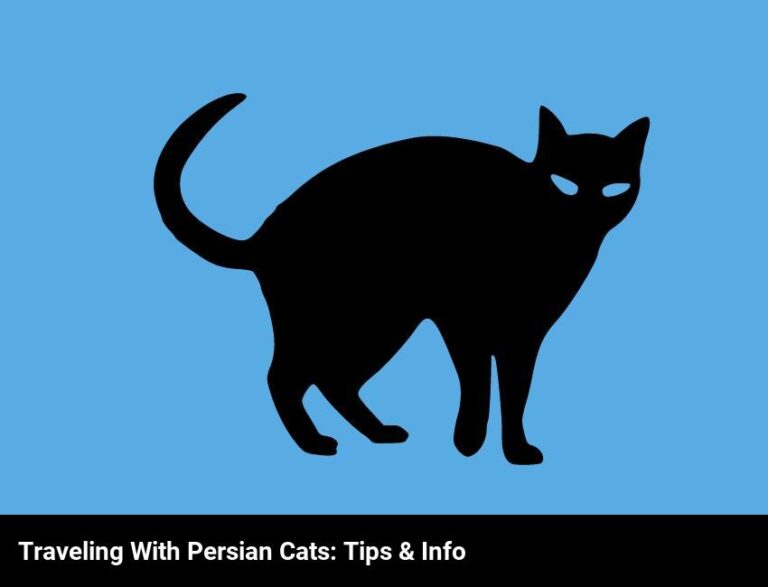Discovering Common Health Issues For Persian Cats And How To Manage Them
Persian cats are prone to certain health issues, including eye problems, skin allergies, and respiratory issues. Regular veterinary visits and careful monitoring of your cat’s health can help identify and manage any potential issues.
I’ve been a proud owner of a Persian cat for several years now, and it’s been a wonderful experience. Persian cats are known for their beautiful fur and loving personalities, but like any other pet, they can sometimes suffer from health issues. That’s why it’s important to be aware of the most common health issues for Persian cats, how to tell if your beloved kitty is sick, and how to manage a Persian cat’s diet to keep them healthy.
In this blog, I’ll be discussing the most common health issues for Persian cats, how to tell if your Persian cat is sick, how to manage their diet, and how often you should take your Persian cat to the vet for check-ups. I’ll also share some signs to look out for that may indicate your Persian cat is unwell, treatments you can do at home to keep your Persian cat in good health, and tips to help ensure your Persian cat stays healthy.
If you’re a Persian cat owner or considering getting one, this blog can help you better understand the common health issues your feline may face and how to manage them properly. So keep reading to learn all about Persian cats and how to keep them healthy.
What are the most common health issues for persian cats?
Persian cats are beautiful, with their long, flowing coats and big eyes. But they can also be prone to a variety of health issues. The most common health issues found in Persian cats are respiratory problems, dental issues, and eye problems.
Respiratory problems, such as asthma and upper respiratory infections, are quite common in Persian cats. These problems can lead to difficulty breathing and can be very uncomfortable for your cat. If you notice your cat having difficulty breathing, it’s important to take them to the vet so that they can get the proper treatment.
Dental issues, such as tartar buildup, can also be a problem for Persian cats. This can lead to bad breath and can make it difficult for your cat to eat. To help prevent this, you should brush your cat’s teeth regularly and make sure they get regular checkups at the vet.
Eye problems, such as conjunctivitis, are also common in Persian cats. This can cause redness, swelling, and discharge in the eyes. If you notice any of these symptoms, you should take your cat to the vet right away so that they can get the proper treatment.
Managing these common health issues in Persian cats is important. You should make sure they get regular checkups at the vet and are up to date on all their vaccinations. You should also brush their teeth regularly and make sure they get plenty of exercise. With proper care, you can help keep your Persian cat healthy and happy.
How can you tell if your persian cat is sick?
If you own a Persian cat, you need to be aware of common health issues that can affect them. One of the biggest signs to watch out for is if your Persian cat is not eating. While they typically have small appetites, if they completely stop eating, that can be a sign of a serious health issue.
Additionally, look closely at your Persian cat’s eyes. If they seem to be running or if they are watery and red, they may have an eye infection. Persian cats are also prone to respiratory issues, so if your cat is coughing or sneezing more than usual, you should visit the vet.
You should also keep an eye on your Persian cat’s coat. If it is becoming more matted than usual or if you notice your cat itching more than usual, they may have an allergy or other skin issue.
Finally, if your Persian cat is suddenly not using the litter box, that can be a sign of a urinary tract infection or another issue. If you notice any of these changes in your cat, you should contact your vet to get help.
How can you manage a persian cat’s diet to keep them healthy?
Keeping your Persian cat healthy starts with their diet. To make sure your Persian cat stays in tip-top health, you should feed them a diet that is both nutritious and tailored to their specific needs. Here are some tips for managing your cat’s diet to keep them healthy:
- Start with a high-quality cat food that is specifically formulated for Persian cats. These types of food contain the right balance of nutrients to meet the needs of your Persian cat.
- Be sure to feed your Persian cat a variety of fresh foods. Offer them lean proteins, healthy fats, and plenty of fruits and vegetables. This will ensure that they are getting all the essential nutrients they need.
- Avoid giving your Persian cat any foods that are high in fat or sugar, such as table scraps, as these can cause health issues.
- Make sure to provide plenty of clean, fresh water for your cat to drink. This will help them stay hydrated and energized.
By following these tips, you can ensure that your Persian cat stays healthy and happy. Remember to always keep an eye on your cat’s diet and make any necessary adjustments to keep them healthy.
How often should you take your persian cat to the vet for check-up?
If you have a Persian cat, you’ll want to make sure to take them to the vet for regular check-ups. Generally, it’s recommended to take them in at least once a year. This will allow your vet to check for any early signs of health conditions and provide your cat with the necessary treatments. Additionally, it’s important to keep an eye out for any changes in your cat’s behavior or appearance. If you do notice anything unusual, make sure to get them checked out at the vet as soon as possible.
Going to the vet may seem like a chore, but it’s a crucial part of keeping your Persian cat healthy and happy. A regular check-up can help diagnose any underlying conditions before they become more serious. Plus, it’s also a great opportunity to ask your vet any questions you may have about your cat’s health care and nutrition.
You may also want to consider getting your Persian cat vaccinated. Vaccinations can help protect your cat from a variety of illnesses and diseases. Talk to your vet about the best vaccination schedule for your cat, and make sure to keep up with their shots on time.
Overall, it’s important to take your Persian cat to the vet for regular check-ups and to get them vaccinated. Keeping up with these appointments will help ensure that your cat stays healthy and happy for years to come.
What are some signs to look out for that may indicate your persian cat is unwell?
If you own a Persian cat, it’s important to be aware of any signs or behaviors that may indicate your feline friend is unwell. Look out for these tell-tale signs that your Persian cat may need to make a trip to the vet:
- Loss of appetite – It’s natural for cats to be picky eaters at times, but if your cat isn’t eating at all, it could be a sign of a more serious health issue.
- Unusual sleeping habits – Cats are known to sleep up to 15 hours a day, but if your Persian cat is sleeping more or less than usual, it could be a sign of illness.
- Changes in behavior – A sudden change in behavior, such as becoming more reclusive or less active, may indicate your cat is feeling unwell.
- Excessive grooming – If your Persian cat is excessively grooming itself, it could be a sign of skin allergies or a flea infestation.
- Vomiting or diarrhea – If your cat is vomiting or has diarrhea, it could be caused by a variety of health issues.
- Weight loss – If your cat is losing weight, it means they’re not getting the nutrition they need.
- Difficulty breathing – If your cat is having difficulty breathing, they may have an infection or a respiratory issue.
If you notice any of these signs, it’s important to take your Persian cat to the vet right away. Don’t delay, as some health issues can worsen without prompt medical attention. With proper care and treatment, your Persian cat can make a full recovery.
What kind of treatments can you do at home to keep your persian cat healthy?
You can do a lot of treatments at home to keep your Persian cat healthy and happy! For starters, you should make sure to brush your cat at least once a week to prevent matting and shedding. Additionally, you should be providing your cat with high-quality food and fresh water daily. Additionally, you should check your cat’s nails regularly and trim them as needed. You can also give your cat supplements to ensure they are getting the proper nutrients they need. Finally, you should provide enrichment activities like scratching posts or toys to help keep them active and engaged.
What are some things you can do to ensure your persian cat stays healthy?
Taking good care of your Persian cat is key to ensuring they stay healthy. Here are some things you can do to help keep your pet healthy and happy:
First, make sure to provide your cat with plenty of fresh water, food, and exercise. Regular exercise and a nutritious diet will help keep your furry friend in top condition. Consider feeding your cat wet food and dry food in order to provide them with the right variety of nutrition.
Second, it’s important to ensure that your cat is getting regular vet check-ups. This is especially important for Persians because they are prone to certain health issues. A vet can help diagnose and treat any potential health problems.
Third, make sure your cat is up to date on all their vaccinations and preventative treatments. This will help keep them safe from diseases and other health issues.
Fourth, groom your Persian cat regularly. Persians need to be groomed every day to keep their fur and skin in good condition. Daily brushing will help keep their fur free from mats and tangles, and also help distribute natural oils throughout their coat.
Finally, show your Persian cat lots of love and attention. Just like any other pet, cats need love and affection in order to stay healthy and happy. Spend time cuddling, talking, and playing with your Persian cat to help them feel secure and content.
Taking these steps will help ensure that your Persian cat stays healthy and happy for years to come.

Frequently Asked Questions
How can you tell if your persian cat is at risk of health issues?
If you have a Persian cat, you can tell if they are at risk of health issues by looking out for signs such as sneezing, coughing, or watery eyes. Additionally, you can take your cat to the vet for regular check-ups to ensure their health is monitored and any potential issues are caught early.
What diet and lifestyle changes can you make to keep your persian cat healthy?
Making lifestyle and diet changes is the best way to keep your Persian cat healthy. Feeding your cat a high-quality, balanced diet is key. Additionally, providing plenty of mental and physical exercise is important for keeping them healthy. This includes interactive playtime, as well as access to scratching posts, perches, and litter boxes. Regularly brushing your cat’s fur and teeth, plus keeping up with regular vet visits, are also essential for good health.
Are there any special medications available for managing common persian cat health issues?
Yes, there are some medications available that can help manage certain common Persian cat health issues. These medications can help reduce symptoms and can be prescribed by a veterinarian. It is important to discuss the best medication option with your veterinarian and to regularly monitor your cat’s response to the medication.
Are there any natural remedies that can help alleviate the symptoms of common health issues in persian cats?
Yes, there are several natural remedies that can help alleviate the symptoms of common health issues in Persian cats. Herbal supplements and essential oils can help reduce inflammation and improve digestion. Probiotics can help restore good bacteria in the gut. Natural remedies such as diet changes, exercise, and stress reduction can also help maintain a healthy lifestyle for your cat.
What is the best way to monitor your persian cat’s health and detect problems early on?
The best way to monitor your Persian cat’s health and detect problems early on is to take them for regular vet visits. During these visits, your vet can conduct physical examinations to assess your cat’s overall health and check for any signs of illness. Additionally, you should watch for any changes in your cat’s behavior, diet, or physical appearance that may indicate a health issue. Finally, ensure you’re providing your cat with a balanced diet and plenty of exercise to keep them healthy.







